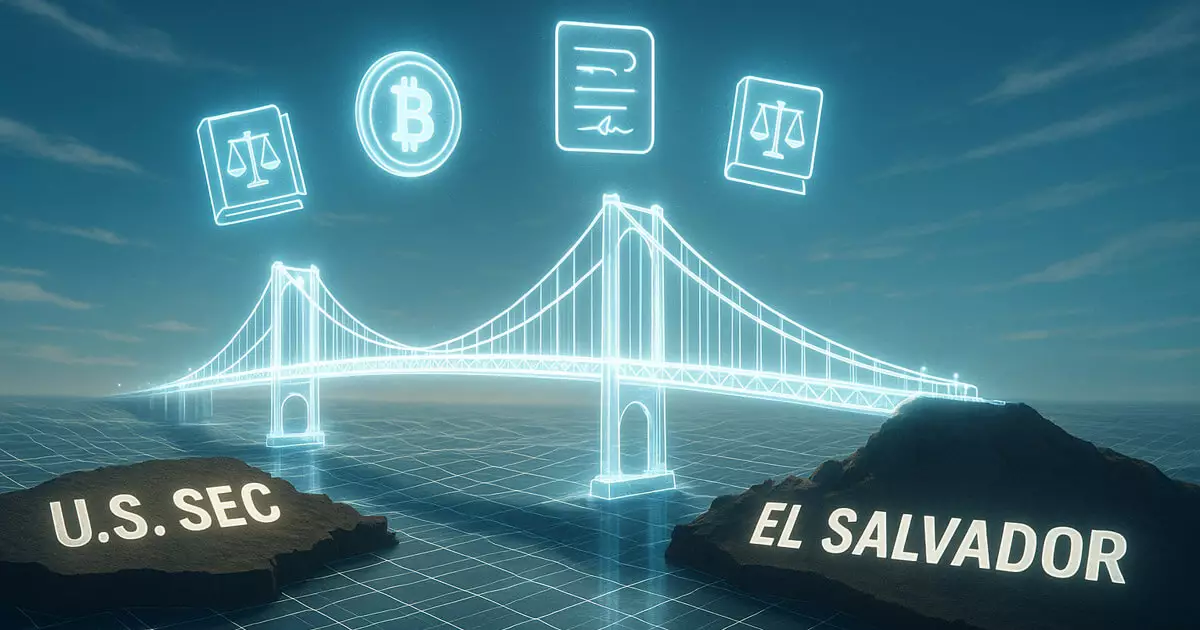The United States Securities and Exchange Commission (SEC) has embarked on a daring journey to reshape its digital asset regulations, partnering with El Salvador’s National Commission of Digital Assets (CNAD). This initiative isn’t merely procedural; it signifies a profound shift in the SEC’s approach to overseeing an industry characterized by rapid innovation and, often, reckless disregard for guidelines. Unlike its historically cautious stance, the SEC is testing the waters with a regulatory sandbox designed to observe the practical implications of tokenization in real-world contexts. This experimental phase offers insights that could alter the regulatory landscape, bridging gaps that have hindered growth and innovation in the crypto space.
Reimagining Tokenization in Real Estate
One of the most striking features of this initiative is the focus on real estate tokenization. The SEC’s recognition of El Salvador’s diverse tokenization experiences speaks volumes about its commitment to learning rather than imposing blanket regulations. By examining how blockchain can transform real estate investments—from fractional ownership to leasing contracts—it brings a fresh perspective on how digital assets can democratize access to traditionally illiquid markets. The pilot programs are not merely academic exercises but potential game-changers for how American investors engage with foreign property. The SEC seems poised to ask pertinent questions: How can tokenization add value? Can it mitigate risks that have plagued the real estate market?
Empowering Smaller Players
Another commendable aspect of the SEC’s venture into pilot programs is its effort to democratize participation in the digital asset market. By capping costs at $10,000 per pilot, the SEC is not just removing barriers for small businesses but incentivizing more inclusive market participation. In a financial ecosystem that often favors the well-connected and capital-rich, this measure could usher in a new wave of innovation driven by diverse stakeholders. Imagine a landscape where a budding entrepreneur can raise capital by tokenizing their startup, or a first-time investor can partake in a real estate investment that was once beyond their reach. These possibilities could breathe new life into our economy, allowing for broader wealth distribution.
Shifting Regulatory Landscapes
The SEC’s new trajectory signals a substantial shift in the regulatory environment, especially with the recent pro-crypto stance adopted following the Trump administration’s initiation of its second term. A more accommodating SEC hints at a recognition of the inevitability of digital assets in the global economy. Dropping antiquated regulations and enlisting stakeholders in policy discussions are not just reactive measures; they indicate a forward-thinking agency willing to evolve. This newfound flexibility in regulation may encourage innovation, drawing investment back into the United States, where historically, many companies have felt stifled under stringent rules.
A New Framework for Innovation
Ultimately, the SEC’s collaboration with El Salvador is not just about regulation; it’s about establishing a framework that fosters innovation while balancing the necessity of investor protection. The acknowledgment of the need for real-time insights further emphasizes a pragmatic approach. As markets continue to evolve at a rapid pace, a static regulatory framework could serve as a throttle on development. Thus, the SEC’s initiatives mark a bold pivot towards a more adaptive strategy that could redefine America’s position in the global digital asset arena.


Leave a Reply